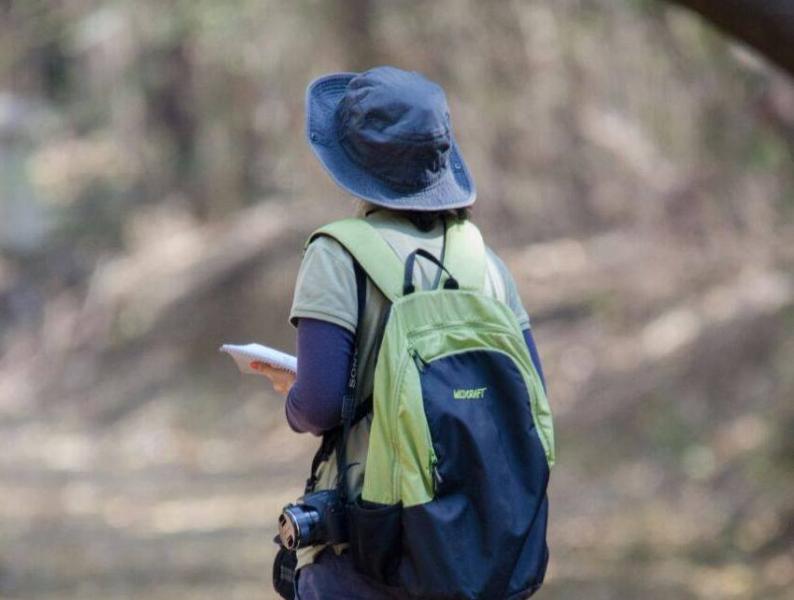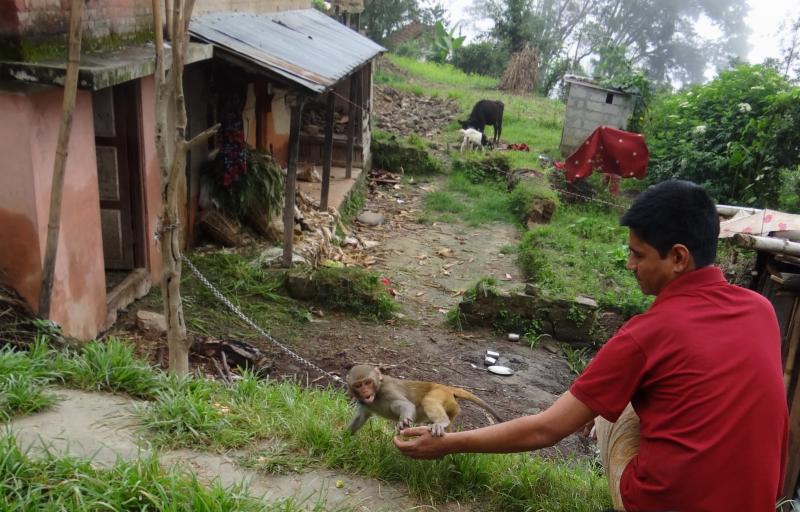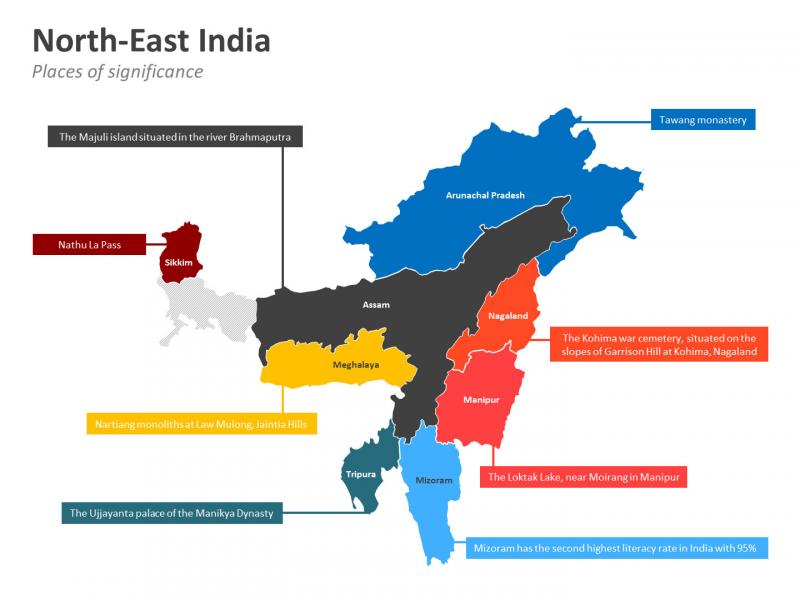What is Ecotourism?
Simply put, it is tourism with an ecological conscience. It involves visiting fragile, pristine, and relatively untouched natural areas, with the intention to support conservation efforts. One observes the flora and fauna in their natural environment and cause as little impact as possible. It is often done on a small scale and is a great alternative to the mainstream commercial tourism.
Ecotourism is critical. We have far left behind the years when this was simply ‘important’- today it is critical. Today each one of us must contribute towards nature. Nature has all the resources to satisfy man’s need. Although humans have become increasingly greedy (our ‘needs’ remain the same, our ‘wants’ spiral out of control), we need, we want but no one gives back. No one replenishes what they take.

Let me explain biodiversity in the simplest way- the variety of life on earth that exists where each and every species is given equal importance. Homo Sapiens understand the importance of Gender Equality, they promote equal rights for both sexes and give equal importance to both men and women. We know that genders are interdependent. Men can’t live without women and visa versa. Similarly in an ecosystem, species of plants and animals live with each other. Not to forget man also forms a part of an ecosystem. Why then are different species of plants and animals not afforded the same importance, why is the perception of importance between species so skewed?

This photo was clicked on the outskirts of Bangalore at Hessarghatta lake bed and grassland. The habitat is rich in biodiversity but has suffered extensive damage due to over-enthusiastic travellers, unethical photographers, overgrazing cattle and off-roading and motor biking activities by locals and tourists
Importance of Ecotourism
Various human activities have triggered an increase in the population of invasive species which make the survival of other species difficult. This directly hampers the food chain along with the habitat and leads to vulnerable existences in the ecosystem. Today mother earth is screaming for protection and man is single-handedly responsible for having put her in such a trouble. There is still time to put a full stop to this destruction by those responsible for this vulnerable position we find ourselves in. You might like to question me- why should I conserve. To them I say go- back to school and read your 8th Std science textbooks once more.
Here’s why you must conserve:
- Rain-forests are responsible for a stable climate; heard of global warming? Destruction of rainforests is a major contributor!
- Most resources and raw materials that we use today for medicinal or industrial purpose come from the forests
- The ozone layer is still intact, thanks to forests, else we’d be dying of skin cancer
- Studies say that pollution and temperature rise shall destroy all the coral reefs in the next 20-40 years
- The earth’s biological treasures are thrashed and scientists are calling it the 6th mass extinction event
- Thanks to birds that today we can fly Mumbai-Delhi and overseas in no time. Nature is highly inspirational

The Small Pratincole clicked at Malyadi Bird Sanctuary in Karnataka
The reasons for conservation are infinite. If I sit back and start writing it would take me a lifetime- suffices to say, if we don’t conserve mother nature, mother nature will not sustain us. There are many ways by which you can do your bit for nature. I would want you to focus on your roles towards conservation via eco-tourism, one of the fun ways of conserving and helping nature. The tourism that we are exploring today isn’t about living in luxury resorts, throwing waste on streets and in lakes, travelling in AC cars, feeding wild animals, habitat destruction and disturbing the entire balance of the ecosystem. We are talking about responsible tourism where you trek, cycle, live with local tribes, experience the real jungle, learn and conserve. Promising yourself to do all that it takes to protect nature- that’s what makes you a responsible eco-tourist.
Steps to Become an Ecotourist
So if you are planning on promoting Ecotourism in India and also becoming an ecotourist, here are a few points to remember:
1. Read and collect Info: Read as much as you can about the place you’re travelling to- before you go there. Read about all the wildlife found in that ecosystem, distance to maintain from these animals and activities to do without causing disturbances to that habitat.

Preparation is key!
2. Don’t encourage ill practices: Clicking pictures with wild animals or throwing stones to see them react, unruly behavior with local communities, feeding animals, off-roading on open spaces and grasslands

I came across this Rhesus Macaque baby near the Shivapuri National Park in Nepal. I am totally against petting wild animals. Most of these locals end up earning money when people pose with their pets. Encouraging these poor villagers for petting wild animals is a very common mistake done by most travellers who are not yet eco-travellers!
3. Avoid plastic: Avoiding plastic as much as you can is a good practice in day to day life and also a way of promoting ecotourism in India. According to a recent study, 5 trillion pieces of plastic are floating on the world’s ocean weighing about 269,000 tonnes. India ranks 12th on the list of twenty worst marine polluter countries. While on your eco-tour try to reuse your plastic bottle or replace them by steel bottles. Plastic is one the biggest pollution problems in natural spaces and cities.

Plastic ruins the entire ecosystem!
4. Follow the “Leave Only Footprints Approach”: While you explore jungles try and bring back the smallest of your waste. Dispose wherever it is possible to reuse/recycle or is the most appropriate place.

Leave Only Footprints
5. Stay on the trail when you go on treks within the wild: This is beneficial for both you and the wild animals. You can easily find your way back without disturbing the animals or invading in their personal space.

Follow the trail- always!
6. Avoid smoking: This is good for your lungs and the earth’s lungs- the forests. Umpteen times cigarettes thrown in dry deciduous forests have triggered uncontrollable forest fires. Forest fires are the single most important cause of destruction of many species at once. It is imperative that we take all necessary precautions to prevent such avoidable disasters, which are against the very essence of ecotourism in India and all over the world. Also cigarette butts take about two to twenty-five years to biodegrade, if ingested by wildlife animals or marine life it’s often fatal for them.

Cigarette butts are not only notoriously non-biodegradable but also a forest fire hazard!
7. Learn to be ethical in the forests: Photographs are one of the essentials in a traveller’s diary. Learn photography ethics or simply talk to the experts to get an idea of how to click wildlife without disturbing them. This is an important factorwhen it comes to ecotourism in Inda.
Here are a few links to help you:
http://www.digicamhelp.com/how-to/nature/wildlife-photography-ethics/
http://focusingonwildlife.com/news/nature-photography-ethics-and-conservation-issues/

I personally like distant photography. This photograph speaks so much about the animal’s habitat. Isn’t it better to capture and witness a Wild Elephant family enjoying at their home. Clicked at Anamalai Tiger reserve in Tamil Nadu
8. Get involved with organisations who promote ecotourism in India: You can choose to work and be an active part of these organisations. I would like to list a few names here- bigger organisations like WWF-India and BNHS run tours and events. Also other private and self funded organisations, one of them being Flock Together- conduct weekend eco-tours based out of Bangalore and Mumbai, learn and have fun.

Organizations which promote ecotourism
9. Make Donations: Everyone must make it a point to donate to conservation efforts! If you do not like ecotourism and wish to travel with all your luxuries and disturb nature- then it’s even more imperative to donate to causes that support conservation. Everyone needs to support the cause. Here are a few links to help you:
https://www.snowleopard.org/shop/index.php?main_page=donate
http://support.wwfindia.org/index.php?link=1&source=WWF_WEB

Donate for a greener tomorrow!
Places for Ecotourism in India
I would now like to take you through a number of ecotourism destinations in India that you can explore once you have decided to become an eco-tourist. India is a land with a huge diversity of dry deserts, snow-clad mountains, rainforests and the grasslands which are perfect for ecotourism.
1. Valparai, Tamil Nadu
The endangered Nilgiri Tahr (A large mammal, a close relative of sheep, shares common ancestors with cattle, horses etc) protected under section I of the Wildlife Protection Act in India can be witnessed grazing here. Valparai is located at 3,500 feet above the sea level on the Anamalai Hills in Tamil Nadu. While you trek down the Shola forests and the lush green tea gardens you might come across Wild Elephants and Great Hornbills. Homestays for tourists is the best option to live and explore the place.

Nilgiri tahr takes a stroll where no human would dare to walk!
2. Chatru and Chandratal lake, Himachal Pradesh
Eco-tourism in India is about visiting the clearest and most pristine lakes in India while at the same time ensuring that it stays like that! You should always reach these spots by foot because that will help keep the water pure. According to locals, this lake situated at a height of 4,300 meters, has immense spiritual significance. The water can be consumed without much purification. The temperature here reaches up to -20 degrees.

The snow-hooded mountains turned upside down by the beauty of Chandratal Lake
3. The Seven Sister States
The North-East of India (The states of Arunachal-Pradesh, Assam, Meghalaya, Tripura, Mizoram, Manipur and Nagaland) is a must-visit on every eco-traveller’s bucket list. These rich tropical rainforests harbour rare and unique species like the Clouded Leopard, One-horned Rhino, Gayal- in the most simple words the wild ox and the only ape found in India-the Hoolock Gibbon. The Hornbill Festival in Nagaland is a once in a lifetime experience, celebrated every year in the first week of December.

The seven sister states and their relative positions!
4. Kokrebellur near Mysore
This village is a prime example of a harmonious relationship between humans and threatened birds- the Spot Billed Pelican and the Painted Storks. The villagers let these birds occupy trees and roofs of their houses, they say the bird droppings are organic manure for their crops. The villagers here welcome the birds like their daughters. When you reach this place as a traveller you would love to hear incredible stories on sustainable living from kids here.

The Spot-billed pelican takes-off
5. The Crocodile Park, Puducherry
Chennai to Puducherry is a beautiful long drive along the stunning coastline of the Bay of Bengal. Every year Olive-Ridley Turtles come to the shore of Puducherry and lay eggs. A lot of destruction has been caused by tourists visiting these beaches from December to February. Most of these turtles are caught by fishermen and the eggs are consumed by locals. Sometimes mere presence of tourists and touristic activities can unknowingly cause disturbances to this vulnerable species. Ecotourism in India can help in changing the general mindset of the people.

This is what you wouldn’t do because you are now an eco-tourist. You have promised to take all necessary steps for conservation
6. Spiti-Valley
One of the most magnificent valleys in the Himalayas is a home for the near threatened Griffon Vulture. Vultures have suffered 99.9% population decline- most of it owing to habitat destruction and lack of food. The clear blue water of Spiti river is breathtaking and pollution free although at some places you will find traces of human waste disturbing the fragile ecosystem. At Spiti you may come across the elusive snow leopard- if you’re really lucky! There are only 400 odd left in India. The temperature here might go up to -20 degrees. It is advisable to go well prepared to enjoy this picturesque tranquil valley.

On careful observation you might be able to see the river bed through the crystal clear water of Spiti River!
7. Bisle Rainforest, Western Ghats
The western ghats in India are a biodiversity hotspot. Bisle rainforest is a home for numerous snakes, frogs, birds and mammals. Although I must warn you before you head out on an exploration here -the forest here is dense vegetation with fog, cold breeze and rains adding to it. Leeches are among the least creepy creatures that you will come across. Be prepared for facing Wild-Elephants, Leopards or a group of Wild dogs. If this doesn’t excite you enough the most dangerous sloth bear might just be waiting outside your tent. Be careful and recall the first point I had mentioned at the start of this post.

Clouds took over while I was driving through the Bisle forest range
